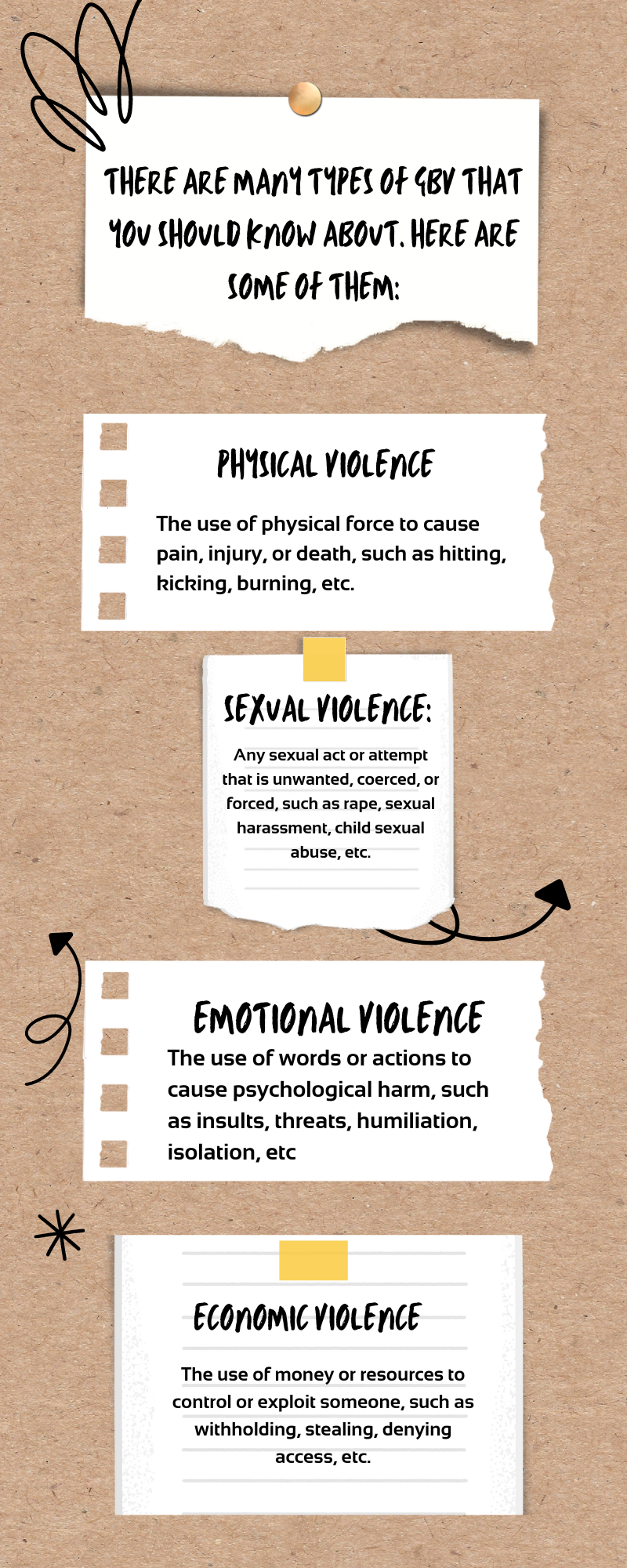GENDER BASED VIOLENCE : What You Need to Know
It is violence that is directed at a person because of their gender or that affects them disproportionately because of their gender. GBV is a violation of human rights and a threat to public health. It can happen to anyone, anywhere, at any time, but it mainly affects women and girls. GBV is a serious problem in East and Southern Africa, affecting at least 1 in 3 women in their lifetime. GBV can have devastating impacts on the physical, mental, sexual, and reproductive health of survivors and their families. It can also hinder social and economic development in the region.

GBV is rooted in gender inequality, harmful norms, and discrimination that devalue women and girls. It can also be exacerbated by poverty, conflict, insecurity, and other factors that increase vulnerability and marginalization. GBV has devastating impacts on individuals, families, communities, and societies. It can cause physical, sexual, psychological, and economic harm, as well as increase the risk of HIV/AIDS, unwanted pregnancies, unsafe abortions, maternal mortality, and other health problems.
GBV also hinders women’s and girls’ access to education, employment, justice, and participation in decision-making.
GBV can be prevented and responded to through various measures, such as raising awareness, promoting education, enacting laws, policies, and standards, providing services and support for survivors, strengthening institutions and coordination mechanisms, engaging men and boys as allies, and empowering women and girls as agents of change. Some examples of good practices and initiatives in the region that are working to end GBV are: the UN Women’s Spotlight Initiative, which supports comprehensive interventions to eliminate all forms of violence against women and girls; the African Union’s Campaign to End Child Marriage in Africa, which aims to accelerate actions to end child marriage by 2030; and the MenEngage Alliance, which mobilizes men and boys to challenge harmful masculinities and promote gender equality.
You can take action to stop GBV in your own ways, such as reporting cases of violence to the authorities or helplines, seeking help if you are a survivor or know someone who is, supporting survivors with empathy and respect, challenging stereotypes and norms that justify or tolerate violence, educating yourself and others about GBV and human rights, joining or supporting movements and organizations that fight for gender justice, and speaking out against GBV in your family, community, workplace, or online. Together, we can end GBV and create a safer and more equal world for everyone. Thank you for your interest and attention.